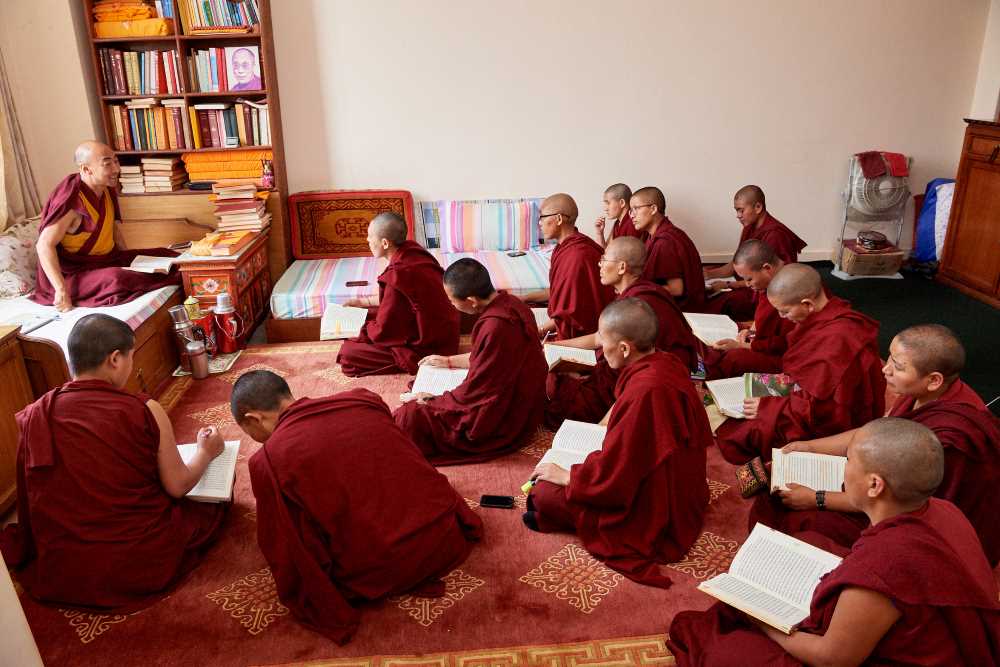 philosophy class |
Living in a monastery, renouncing the life of a householder and following the 'footsteps of the Buddha' as the ordained life is sometimes called, is an ordered and disciplined life. The Vinaya (the rules that Buddha Shakyamuni laid down as the basis of ordained behavior) and the monastic rules of the respective monastery form the framework of the life in a monastery.
The vision or aim of Lama Thubten Yeshe and Lama Zopa Rinpoche when founding Kopan Monastery was to preserve the rich and unique religious and cultural heritage from Tibet and impart quality modern education to monks and nuns alike. This constitutes a well rounded, well balanced education that trains the mind in ethics and morals as well as knowledge, and leads students to be kind and compassionate human beings.
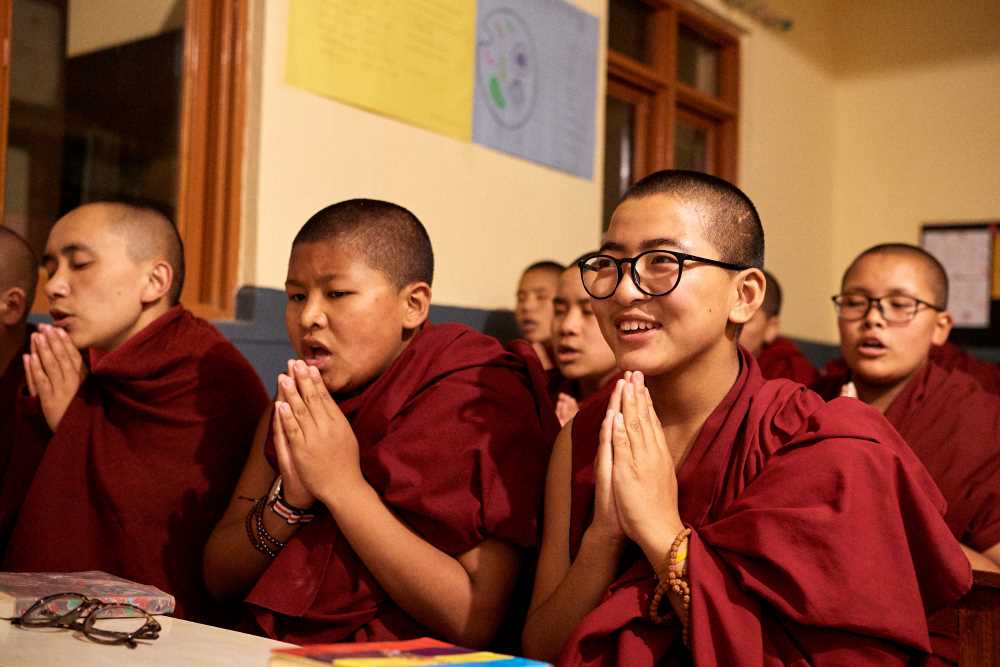 |
Buddhist Philosophy and Debate are the main subjects of the monastic education program. These studies usually start after completing class five of the school education. They are complemented by Lam Rim teachings and instructions on personal practice, oral transmissions of mantras, and advice on how to develop the mind. The aim is the development of human qualities such as humility, discipline, mutual understanding, co-operation, patience and compassion. This encourages the students to be better human beings with a good heart and wisdom. They become responsible citizens of the planet we live on, who have all the qualifications to serve others in Lama Zopa Rinpoche's worldwide organization. Ambitious goals for sure, but as Lama Yeshe says: '….the power of the mind is incredible, limitless.'
Philosophy Studies
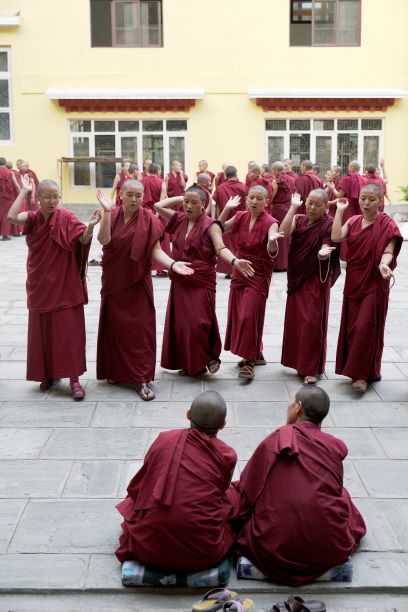 |
Memorizing is considered an essential skill in Buddhist studies, as it sharpens the mind and trains the memory. This skill has been mostly lost in Western school education. When the young monks enter the monastery, their first task is to memorize all the prayers and pujas that are part of the monastery's daily schedule. This takes several years, during which the monks also attend their regular school classes.
It is interesting to understand why memorizing is emphasized so much in the Tibetan tradition. To put it in simple terms, without knowing and remembering the actual words, you will not be able to remember the meaning without using notes, etc. This applies not only to the meaning of words, but also to logical arguments. Without knowing and remembering the actual words, you will not be able to remember the meaning without using notes, etc. This applies not only to the meaning of words, but also to logical arguments.
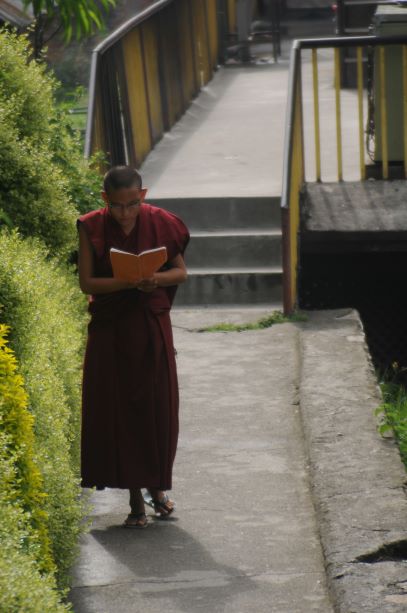 |
Debate occupies an important place in monastic education. To be a good debater is considered a high mark, and much time is spent on refining the logical arguments needed.
The essence of effective learning, according to the scriptures and also to modern research, is to listen, then contemplate, and then debate. The first step for the student is to memorize the text he is studying. This will give the mental flexibility to refer to any part of the text in debate without hesitation. The next step is for the teacher to elucidate the meaning of the text, backing up his statements with reason and logic. Questioning the validity of these statements sharpens the mind.
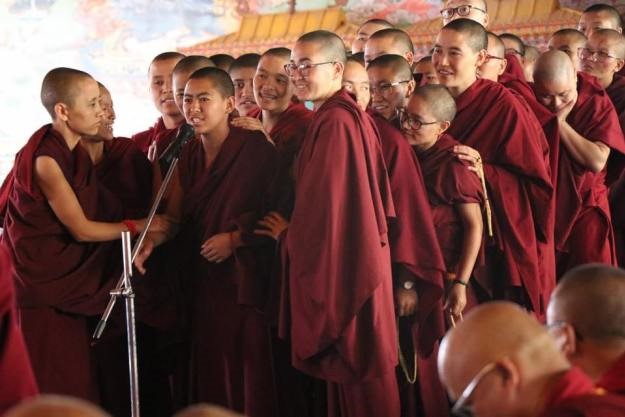 group debatee |
In debate these statements are then challenged again and again by fellow students, trying to prove their own point of view or disproving their debate partner's point of view. The aim of the debate is to come to a conclusion based on valid reason and logic and not just following the words of teachers. Compared to the way we learn in the West, this is a radically different approach and extremely effective. To watch a debate can look like there is some sort of serious argument going on. There is indeed, but without the personal and emotional overtones of everyday arguments. It is a battle of the minds, probing deeply into the meaning of the scriptures and testing them and clarifying one's own doubts with the help of one's fellow students in many different ways, till one is convinced of their validity.
Debating philosophical topics is in accordance with the teachings of the Buddha, who said we should analyze the teachings before accepting them, just as we would analyze the purity and quality of gold before buying any. If you are unfamiliar with the Tibetan way of debate, then, when observing it, all you will see is the monks shouting and jumping up and down and shouting at each other. it can looks quite chaotic. However, there is much more to it. Read more on Debate here
Every year all the nunneries in the gelug tradition tmeet for a inter-monastic debate called Jang Gunchoe, where the various debating teams are taking the measure of each other's knowledge and progress in a friendly way. Read more about Jayang Gunchoe here

